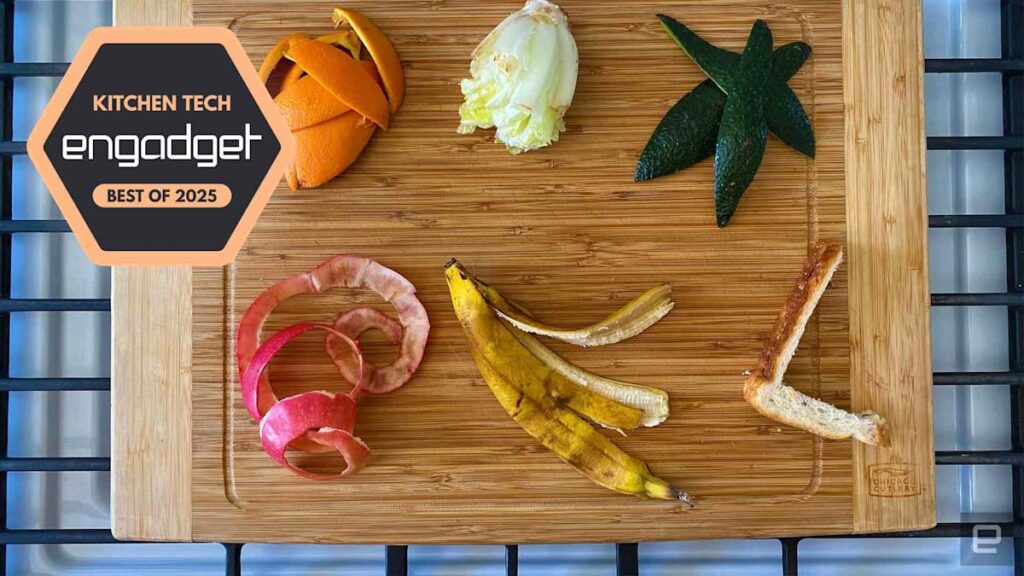
<span class=caption-credit> Amy Skorheim for Engadget</span>
The Best Way to Compost Your Food Scraps: A Complete Guide to Sustainable Waste Management
Key Takeaways
- Americans throw away an estimated 200 pounds of food per person annually
- Food waste in landfills contributes to climate change through methane emissions
- Composting transforms food waste into nutrient-rich soil amendments
- Multiple composting methods exist, from home systems to professional services
Understanding the Importance of Composting
In today’s environmentally conscious world, finding the best way to compost your food scraps has become increasingly important. With each person in the US throwing away approximately 200 pounds of food annually, proper food waste management is crucial for environmental sustainability. When food waste ends up in landfills, it decomposes anaerobically, releasing methane – a potent greenhouse gas that contributes significantly to climate change.
Home Composting: The Traditional Approach
Home composting remains one of the most effective ways to manage food scraps. This method involves creating a controlled environment where organic materials break down naturally through microbial activity. While it requires some effort and space, home composting offers numerous benefits:
Benefits of Home Composting
- Reduces household waste by up to 30%
- Creates nutrient-rich soil amendments for gardens
- Reduces methane emissions from landfills
- Promotes sustainable living practices
Kitchen Composting Machines: Modern Solutions
For those with limited space or time, kitchen composting machines offer a convenient alternative. These devices process food scraps through dehydration and grinding, significantly reducing volume and eliminating odors. Popular options include:
Popular Composting Machines
- Mill ($40-65/month): Subscription-based service with USPS pickup
- Lomi ($828): Compact countertop unit with multiple processing modes
- Reencle ($499): Uses microorganisms for continuous processing
Professional Composting Services
For urban dwellers or those seeking a hands-off approach, professional composting services provide an excellent solution. These services typically offer:
Service Features
- Regular pickup of food scraps
- Proper processing at commercial facilities
- Return of finished compost to customers
- Acceptance of a wide range of organic materials
Choosing the Best Composting Method for You
Selecting the best way to compost your food scraps depends on several factors:
Consideration Factors
- Available space for composting
- Time commitment for maintenance
- Budget for equipment or services
- Local regulations and restrictions
- Intended use of finished compost
Environmental Impact and Future Outlook
The best way to compost your food scraps not only benefits individual households but also contributes to broader environmental goals. As more municipalities implement composting programs and technology advances, the future of food waste management looks increasingly sustainable.
Future Trends in Composting
- Expansion of municipal composting programs
- Development of more efficient composting technologies
- Increased public awareness and participation
- Integration with smart home systems
Conclusion
Finding the best way to compost your food scraps is an essential step toward sustainable living. Whether you choose home composting, a kitchen machine, or professional services, each method contributes to reducing food waste and its environmental impact. By implementing these practices, we can all play a part in creating a more sustainable future.





